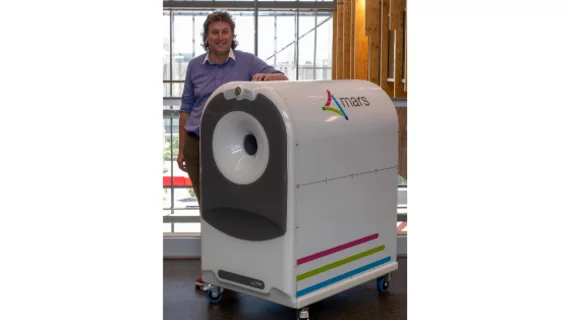Father-son team set to test their 3D color scanner in large trial investigating hand injuries
A father-and-son team from New Zealand is set to test their novel three-dimensional color scanner in a new large-scale clinical trial beginning next year.
It was back in 2006 when Phil Butler, PhD, a professor of physics at the University of Canterbury and Anthony Butler, PhD, who heads the University of Otago’s radiology department, created the MARS scanner. And then in 2018, the father-and-son pair successfully imaged their first human patient.
For their upcoming trial, the Butler family will test a special compact scanner—adapted from the MARS machine—in up to 150 individuals over a year-long study period. Participants will be imaged for hand and wrist injuries at either an after-hours clinic in Christchurch, New Zealand, or at Lausanne University Hospital in Switzerland.
Next years’ research will build off of a successful 2019 study of orthopedic patients that found the wrist scanner produced images on par with current CT machines, potentially also offering MRI information to enhance diagnoses, according to a Nov. 16 statement.
"Results from the initial Christchurch-based patient trials showed our scanner's high-resolution spectral imaging could provide significant improvements in the diagnosis of hand and wrist injuries,” Butler commented.
Wrist injuries are common, but diagnosing them can be difficult, the pair noted. With regulatory approval, they believe the wrist scanner could be available for clinical use in 2021.
The family began developing their MARS scanner more than a decade ago, using technology adapted from the European Organization for Nuclear Research, or CERN. Their CT machine—which uses x-rays— utilizes a novel camera with pixels roughly 10-times smaller than normal.
Health Imaging sat down with the father-and-son team in 2018, fresh off the heels of imaging their first human patient, who turned out to be Phil Butler.
You can read that entire Q&A here.

